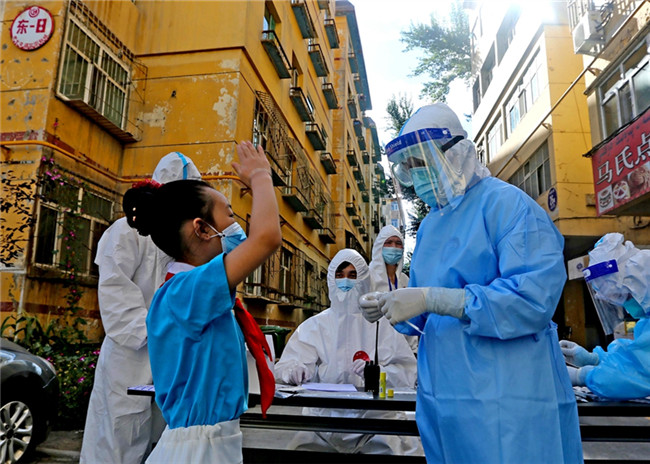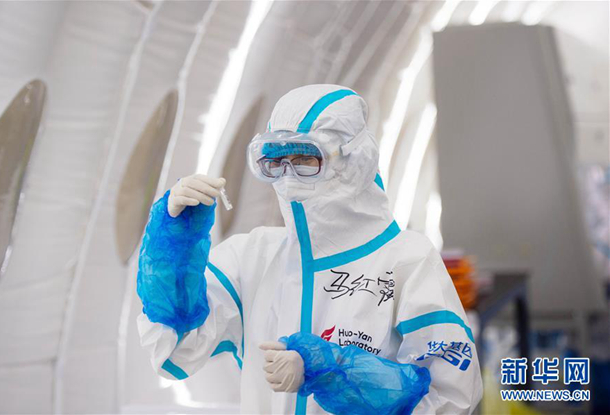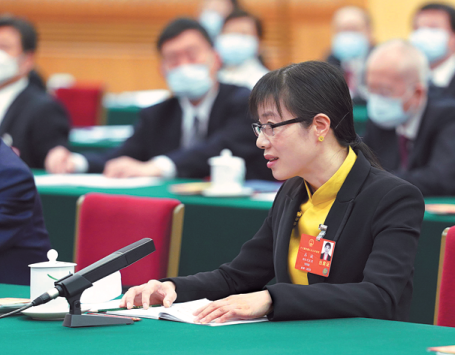
Expert Answers 8 Key Questions on Novel Coronavirus
Feng Zijian, deputy director of the Chinese Center for Disease Control and Prevention, answered questions about the novel coronavirus epidemic during an interview with CCTV on Monday night. Below are excerpts from the interview:
Q1. Why has the number of confirmed cases of the novel coronavirus increased dramatically?
A: The sharp increase of confirmed cases has a lot to do with the ability of the coronavirus to spread. Currently it seems that the human-to-human transmission of the virus is getting stronger.
Another factor contributing to the rocketing number of infections lies in the time of the epidemic outbreak, which happened in early December. As the Spring Festival travel rush kicked off less than a month later, people in areas with severe infections traveled nationwide, which accelerated the spread of the disease.
Especially Wuhan, Hubei province, the epicenter of the outbreak and with a backlog of suspected cases, has seen a rapid growth of confirmed cases due to the recent centralized diagnosis.
Q2. Why did the number of confirmed cases surpass that of severe acute respiratory syndrome (SARS) in a shorter time?
A: The research shows that human-to-human transmission of the novel coronavirus is similar to SARS, which means that a patient can infect two to three people on average.
However, the doubling time of the novel coronavirus is shorter than that of SARS. Compared with nine days to double the number of infected cases in terms of SARS, it only took about six or seven days for the novel coronavirus.
Q3. Are the changes in the novel coronavirus the reason of the increase in infected children?
A: The increase in child cases might be related to the various chances of human exposure. People at different ages are all susceptible to the new respiratory pathogen. But the chance of exposure may vary due to different ages, and so does the incidence.
It's observed that the symptoms of the pneumonia disease seem to be less severe in a child than that of an adult. No critical conditions have been reported in child cases.
Q4. Is there another outbreak period of the novel coronavirus in the future? When can the epidemic be basically controlled?
A: It is indeed very difficult to predict the epidemic trend at present. With multiple measures having been taken, we will effectively control the spread of the coronavirus. But we can't have high hopes it will be done in a week.
We must continue to strengthen the prevention and control measures and step up the diagnosis and treatment efforts in areas of severe infections, as well as enhance the detection of infected cases in other places. We will also trace people with close contact with patients and put them in medical observation. The epidemic will be brought under control as long as all the measures can be put in place.
Q5. What's the point of extending the Spring Festival holiday? Is there a need to further extend the holiday?
A:It's a very important strategy to control respiratory infectious disease with human-to-human transmission by reducing the flow of people and personal contact, as well as increasing interpersonal distance. Chinese authorities extended the Lunar New Year holiday as a key measure to control the spread of the novel coronavirus.
There is no doubt that the longer the holidays are, the better control of the epidemic will be. But we also have to balance things because people still have to live and work, and emergency materials have to be produced and transported.
The prevention and control of infectious diseases need to take both sides into consideration. On the one hand, we have to take measures to block the spread of the epidemic. On the other hand, we have to minimize the impact on people's lives, as well as social and economic impacts.
Q6. Is it necessary for all people to isolate themselves for 14 days after returning to workplaces?
A: It's necessary for people who returned from Hubei province where there are severe infections to self-isolate at home for 14 days.
For those from other places where there is no obvious community transmission, it's sufficient to take self-protection measures, such as wearing a mask at work, taking your temperature frequently, and seeking medical treatment in a timely manner.
Q7. Why is everyone crying for a lack of nurses?
A: The lack of nurses, especially in pneumology departments, is a long-standing problem in the country's medical service system. Under the outbreak of the novel coronavirus, the sharp increase of patients magnified the problem and requires medical force assistance from other places.
Now a large number of healthcare workers have been sent to Wuhan, Hubei province, which will alleviate the shortage of nurses and medical staff in a short period.
Q8. What do you think of the prevention and control of the epidemic spread in the rural areas?
A: We have to pay more attention to rural areas since healthcare conditions are relatively weak there with less medical resources. If the widespread pneumonia disease occurs in rural areas, it will pose a greater challenge and pressure on medical systems. Therefore, we will strengthen monitoring and preventive measures to contain the possible spread of the virus in rural areas.
(Source: Xinhua)
 Women Medics in NW China's Xinjiang Contribute to COVID-19 Epidemic Containment
Women Medics in NW China's Xinjiang Contribute to COVID-19 Epidemic Containment Women CPC Members on Front Line of Anti-COVID-19 Battle in Beijing
Women CPC Members on Front Line of Anti-COVID-19 Battle in Beijing Deputy Recalls Role in COVID-19 Fight
Deputy Recalls Role in COVID-19 Fight- Woman Epidemiological Researchers Race Against the Clock on Front Line
 Pic Story of Nurse Who Aided COVID-19 Fight in Wuhan
Pic Story of Nurse Who Aided COVID-19 Fight in Wuhan Volunteer Provides Milk Tea, Back up Anti-Epidemic Workers in NE China
Volunteer Provides Milk Tea, Back up Anti-Epidemic Workers in NE China

 京公网安备 11010102004314号
京公网安备 11010102004314号